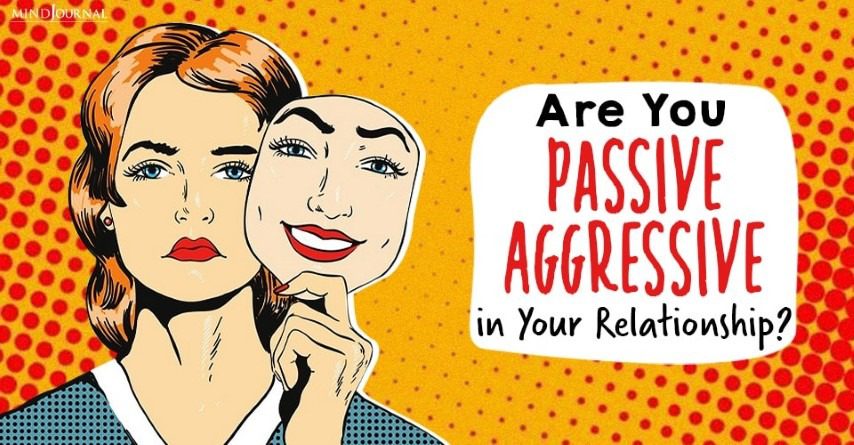Passive Aggression in Relationships
Passive aggression in relationships is a common behavior that can cause significant damage to relationships if left unresolved. It often stems from unresolved emotions and past experiences, especially when a person feels powerless or unable to express their feelings directly. This can lead to indirect and passive ways of communicating, such as sarcasm, sulking, or deliberately putting off tasks.
Early childhood experiences can contribute significantly to passive-aggressive behavior. If a child is taught that expressing anger or frustration is not allowed or will be punished, they may learn to suppress their feelings later in life and resort to indirect means of communication. Additionally, if a child has witnessed passive aggression from their caregivers, they may learn that this is an acceptable way to resolve conflict.
In romantic relationships, passive aggression can undermine trust and intimacy. The receiving partner can become confused and hurt, leading to a breakdown in communication and ultimately the breakup of the relationship. Passive aggression in a relationship can be particularly difficult to address because it is often difficult to recognize and can be mistaken for mere thoughtlessness or lack of effort.
Therapists often approach passive aggression from a holistic perspective, taking into account the mind-body connection and the role of early experiences in shaping behavior. Therapy can provide a safe and supportive environment for individuals to explore and understand their emotions, especially those that have been repressed for years. By helping individuals become more aware of their emotions and the behavioral patterns that result from them, therapists can help individuals develop healthier communication skills and break free from passive-aggressive cycles.
One approach that has been successful in treating passive aggression is helping individuals identify and express their emotions directly and assertively. Therapists can work with clients to identify the thoughts and feelings that trigger passive-aggressive behavior and help them develop assertiveness skills to channel these emotions in constructive ways. This approach may also include helping individuals develop better coping mechanisms for dealing with conflict and stress.
Manipulation of people through official media
Another approach that may be helpful is somatic therapy, which recognizes the mind-body connection and the role of physical sensations in shaping behavior. By raising awareness of the physical sensations associated with passive-aggressive behavior, somatic therapy can help individuals break free from these patterns and develop healthier coping mechanisms.
Passive-aggressive behavior often stems from underlying psychological and emotional issues, including childhood trauma and experiences. When an individual experiences childhood trauma or abuse, they may develop coping mechanisms to protect themselves, such as withdrawing emotionally or becoming passive-aggressive.
In some cases, passive-aggressiveness can also be the result of low self-esteem or a lack of confidence in one’s ability to assert oneself. This can be especially true in situations where an individual feels powerless or out of control, such as workplace or family dynamics.
Childhood experiences can also contribute to the development of passive-aggressive behavior. For example, if a child grew up in an environment where expressing emotions was not encouraged or even punished, they may have learned to suppress their feelings and rely on indirect communication. Additionally, if a child witnessed their caregivers being passive-aggressive, they may learn that this is an acceptable way to resolve conflict.
Unresolved emotions from past experiences can contribute to passive-aggressive behavior. For example, if an individual was hurt or traumatized in a past relationship and did not address the underlying emotions, they may carry that pain and anger into future relationships, leading to passive-aggressive behavior.
It is important to note that passive-aggressive behavior is not always a conscious choice. Often, individuals are unaware that they are behaving in a passive-aggressive manner and may not realize the impact it is having on their relationships.
Therapy can be helpful in addressing the underlying psychological and emotional issues that contribute to passive-aggressive behavior. Through therapy, individuals can gain insight into their thoughts and feelings, develop self-awareness, and learn healthier ways to cope with stress and conflict. By addressing the root causes of passive-aggressiveness, individuals can break free from these patterns and develop more authentic and fulfilling relationships.

Keywords: Passive aggression in a relationship, passive aggression, psychotherapy, psychotherapist Zagreb, Licensed therapist near me in Manhattan NYC, Affordable therapy services in New York State, Holistic psychotherapy sessions in NYC, Somatic Experiencing therapy for trauma recovery in New York City, NARM therapy in Brooklyn, Licensed couples therapy in Manhattan, Gestalt therapy near me in NYC, Marriage counseling in Queens NYC, Therapy for anxiety treatment in NYC, Experienced psychotherapist in New York, Licensed psychotherapist near me in NYC, Somatic Experiencing therapy sessions in New York, Trauma therapy and counseling in Manhattan, Gestalt therapy sessions in New York City, Therapy sessions for emotional regulation in New York, Trauma therapy near me in Brooklyn New York, Licensed mental health therapist in Manhattan NYC, Depression therapy in New York, New York City therapist experienced in PTSD treatment
*Photo: Themindsjournal
*Contact: Make an appointment
*For companies: Creative manager
Somatic Experiencing and Sexual Trauma









